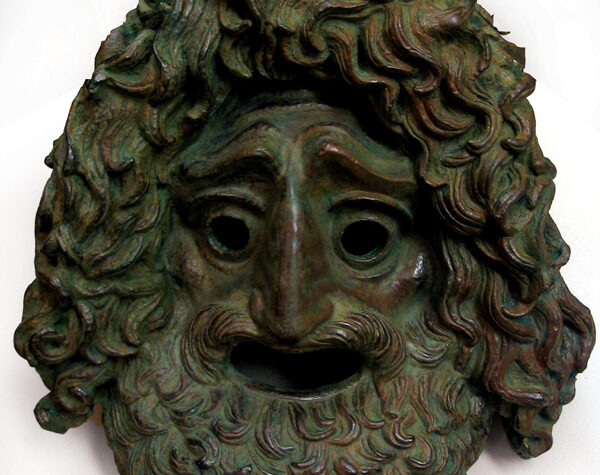Definition of Tragicomedy: Tragicomedy is a literary genre that blends elements of tragedy and comedy. It involves the incorporation of serious, often tragic, themes and situations alongside comedic ones. This blend results in narratives that reflect the complexity of human experiences, where humorous and sorrowful elements coexist, and outcomes that are neither wholly tragic nor entirely comedic.
Etymology and Origin: The term ‘tragicomedy’ is a fusion of the words ‘tragedy‘ and ‘comedy‘. Its etymological roots can be traced back to the Greek words ‘tragōidia’ (tragedy) and ‘kōmōidia’ (comedy). The concept, as a formal genre, began to take shape during the Renaissance period. However, the intertwining of tragic and comedic elements can be seen in earlier forms of drama, including those of Ancient Greece. Roman playwright Plautus (254–184 BCE) is credited with one of the earliest uses of the term, where he applied it to plays that did not fit neatly into the categories of straightforward comedy or tragedy.
In Ancient Greek theatre, while comedies were primarily humorous and satirical, they often contained elements of pathos or seriousness, not unlike the tragedies that dealt with profound and sombre themes. This early mingling of comedic and tragic elements in Greek and Roman theatre laid the groundwork for the later emergence of tragicomedy as a distinct genre.



